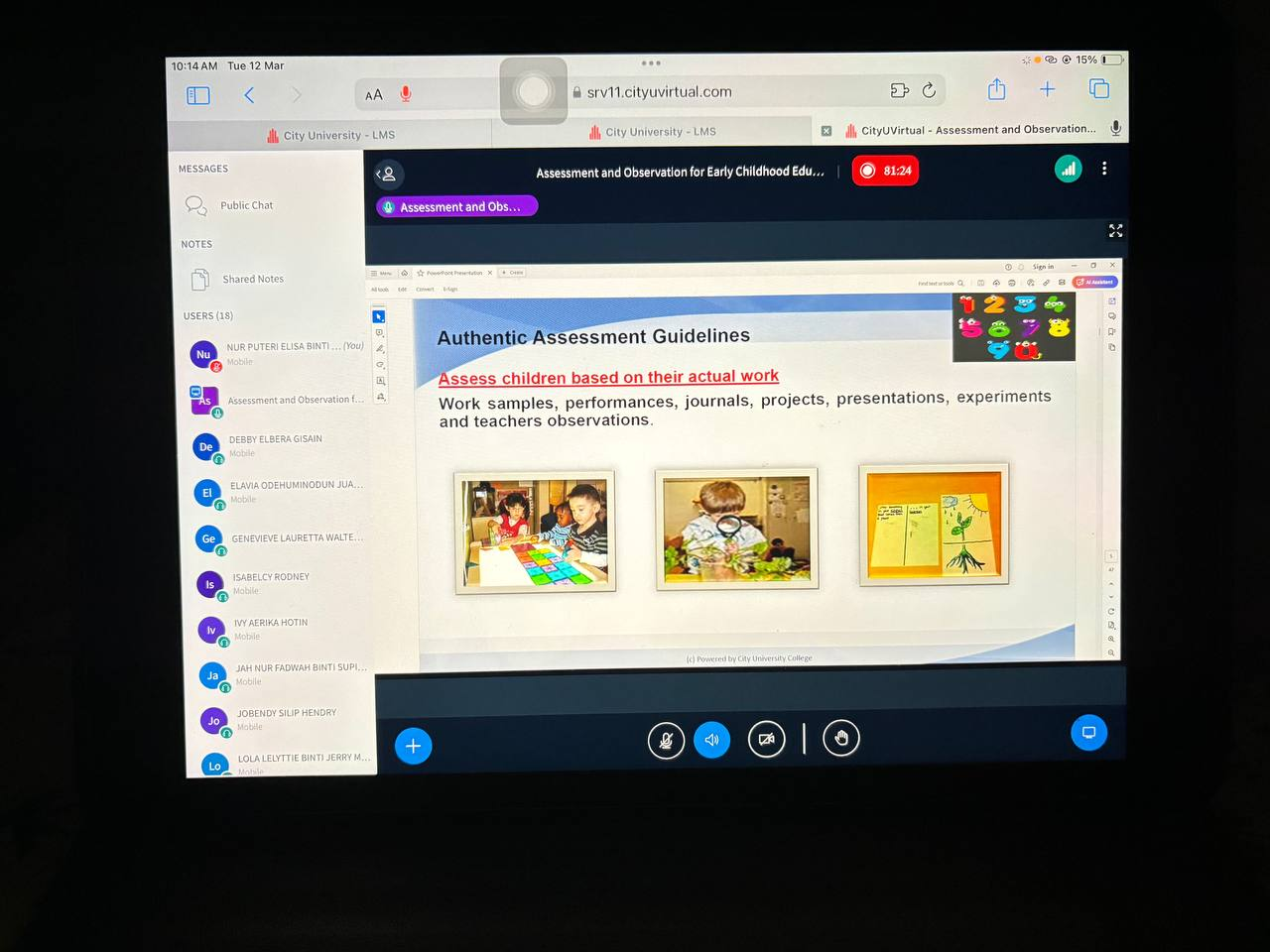TUESDAY (12MARCH2024)
Hi everyone, Assalamualaikum. I hope this Ramadan brings you peace,joy and blessing beyond measure. InsyaAllah 💕
So this is my update for 1st Ramadan and first online class. Happy reading guys.
So we started our class on 8:40am because of Madam waited for the rest to join LMS. We started our class by learning authentic assessment.
Authentic assessment in early childhood education is all about getting a real-world picture of a child's skills, knowledge, and development. Unlike traditional tests with pen and paper, it focuses on observing and documenting how a child performs during everyday activities and routines. Below are the characteristic of authentic.
- Observation-based: Teachers watch how children interact with materials, solve problems,
and engage with others during playtime, block building, or storytelling.
- Focus on process: The emphasis isn't on getting the "right" answer, but on how a child approaches tasks, what strategies they use, and how they learn from their experiences.
- Holistic: Authentic assessment considers the whole child - their social skills, emotional development, cognitive abilities, and creativity.
- Involves families: Teachers often gather information from parents and caregivers about a child's activities and routines at home to get a complete picture.
- Informs teaching: By understanding a child's strengths and weaknesses, educators can tailor their teaching methods to better support their learning.
HERE ARE SOME EXAMPLES OF AUTHENTIC ASSESSMENT TECHNIQUES IN ECE:
- Anecdotal notes: Teachers write down observations about a child's behavior during playtime or while working on a project.
- Portfolios: These collections showcase a child's work over time, including drawings, writing samples, photos of their creations, and teacher observations.
- Running records: Teachers document a child's thought process and strategies as they engage in a learning activity.
Authentic assessment is crucial in early childhood education (ECE) for several reasons:
Deeper understanding of the child: Unlike standardized tests, authentic assessment looks beyond rote memorization and reveals a child's true strengths, weaknesses, and learning styles. By observing how they interact with materials, solve problems, and engage with others, educators gain a more holistic picture of their development.
Focus on learning process: Authentic assessment emphasizes the "how" over the "what." It allows educators to see a child's thought process, strategies, and approaches to tasks. This valuable information helps teachers tailor their instruction to better support individual learning journeys.
Informs individualized learning: With a clearer picture of each child's needs and strengths, educators can create a more personalized learning environment. They can adjust activities, provide targeted support, and challenge children appropriately.
Promotes a love of learning: Traditional assessments can create performance anxiety and pressure. Authentic assessment, on the other hand, is embedded in everyday activities, making learning a more natural and enjoyable experience.



Comments
Post a Comment